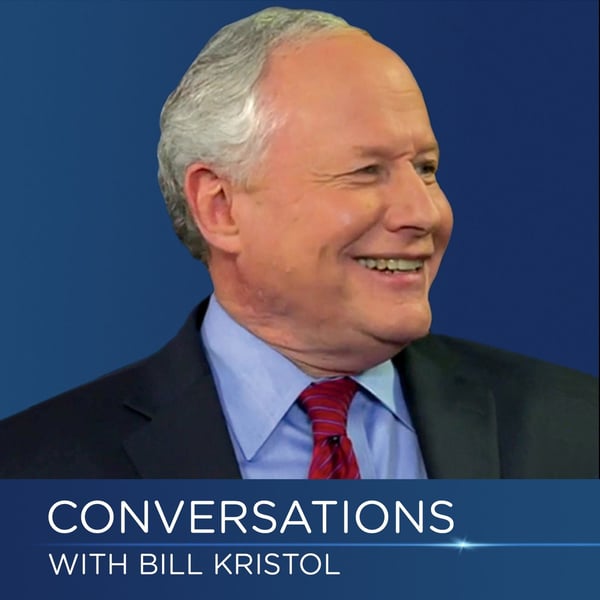Harvey Mansfield on Machiavelli as the Founder of Modernity
Conversations with Bill Kristol
Conversations with Bill Kristol
4.7 • 1.7K Ratings
🗓️ 21 October 2021
⏱️ 72 minutes
🧾️ Download transcript
Summary
Transcript
Click on a timestamp to play from that location
| 0:00.0 | Hi, I'm Bill Crystal. Welcome to Conversations. I'm very glad to be joined again by Harvey Mansfield, |
| 0:20.4 | the Harvard professor, the original converser or conversationalist or whatever the |
| 0:26.2 | proper term is here. But it's great to have you back and great to be discussing Machiavelli, |
| 0:31.6 | which you've worked on for a long time, translated several of the major works. And I'll tell you |
| 0:38.4 | to be here. Thank you. Well, good to have you. And I'll tell you an earlier volume from 1996, |
| 0:43.1 | Machiavelli's Virtue. And now of the forthcoming volume of articles, Machiavelli's |
| 0:50.9 | Effectual Truth. At least that's where you're intending to go online. That's your title, right? |
| 0:57.2 | And of which there's a new introduction, which we'll focus on perhaps today, which is really |
| 1:02.3 | terrific and important, I think. And then a very long essay, which could be a short book on |
| 1:07.4 | Machiavelli and Watchescue, which you could also, if you can touch on that too. That would be great. |
| 1:13.0 | So it's really great to have you back first of all, and right to have you here, |
| 1:18.8 | meeting interpreter Machiavelli, one of the two great modern interpreters Machiavelli. Well, |
| 1:25.0 | well, it's okay to put Leo Stras in the same category. Elevate him to the same category. |
| 1:31.7 | That's a great elevation for me. So let's talk about an undeserved elevation. Let me say a word |
| 1:43.1 | for Leo Stras. And his thoughts on Machiavelli is a famous game-changing book of 1958. |
| 1:50.0 | He changed his opinion about Machiavelli as well. I think it's well-known. An earlier book |
| 1:56.0 | in the late 30s on the political philosophy of Hobbes, he said that Hobbes was the founder of |
| 2:03.4 | modernity. And in this book, he changed his mind. And he said, no, it wasn't Hobbes. It was |
| 2:11.1 | Machiavelli. He had not paid sufficient attention to the forces that prevented Machiavelli |
| 2:20.5 | from being as explicit as Hobbes was. And that was the reason that he gave for his mistake, |
| 2:31.0 | as he said. And in his Hobbes book, he claimed, he made it in arguments, still powerful, |
| 2:41.5 | and read by most of the scholars on Hobbes, and believed by some of them, that Hobbes is more |
... |
Please login to see the full transcript.
Disclaimer: The podcast and artwork embedded on this page are from Conversations with Bill Kristol, and are the property of its owner and not affiliated with or endorsed by Tapesearch.
Generated transcripts are the property of Conversations with Bill Kristol and are distributed freely under the Fair Use doctrine. Transcripts generated by Tapesearch are not guaranteed to be accurate.
Copyright © Tapesearch 2025.

